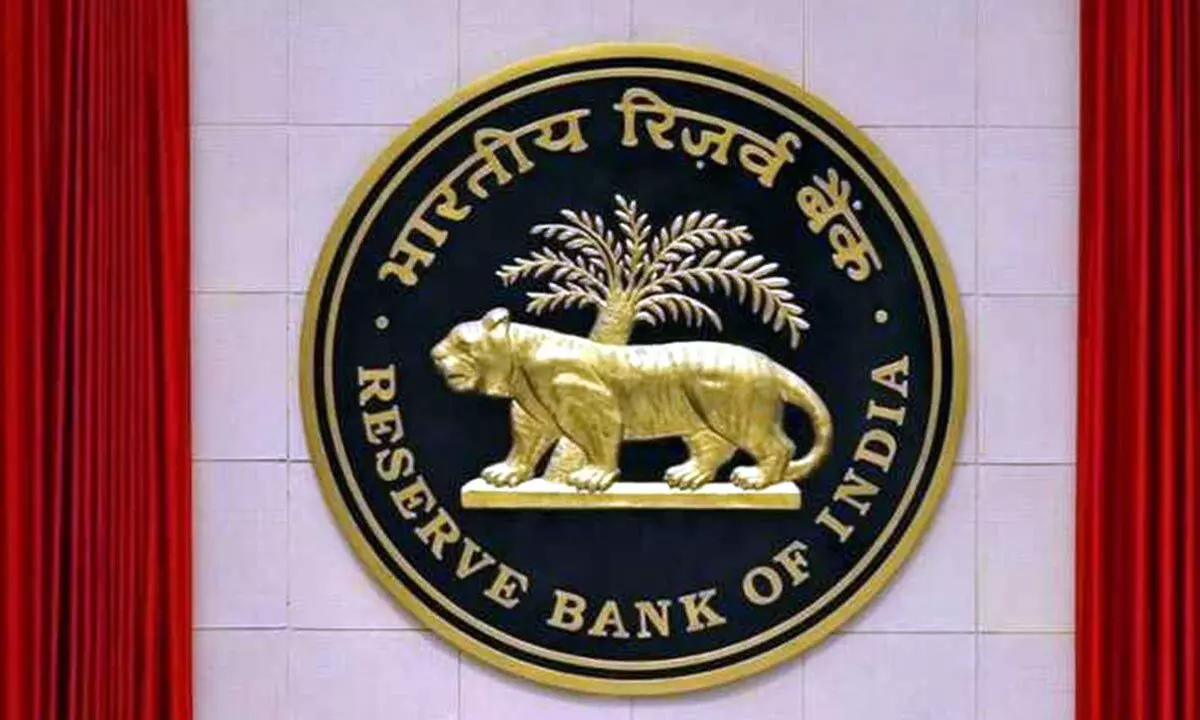RBI may raise policy rates by 75 bps cumulatively in next 2 reviews: SBI Research
SBI Research expects the central bank, Reserve Bank of India (RBI), to raise key policy rates both in its June and August policy meeting by a cumulative 75 basis points.
image for illustrative purpose

New Delhi, May 13 SBI Research expects the central bank, Reserve Bank of India (RBI), to raise key policy rates both in its June and August policy meeting by a cumulative 75 basis points.
Beyond August, rate actions might be more balanced and judicious and the terminal repo rate is expected to be at 5.15-5.25 per cent by FY23, it said.
This is tantamount to saying that the RBI should not increase the repo rate by more than 1.25 per cent for an incremental negative contribution to kick in.
Retail inflation surged to 7.79 per cent on yearly basis in April 2022, as compared to 6.95 per cent in March 2022, mainly on account of food price inflation.
Inflation prints are now likely to stay higher than 7 per cent till September, the SBI Research said in a report.
"Beyond September, inflation prints could hover between 6.5-7.0 per cent. Our FY23 inflation forecast is at 6.5 per cent, taking into account the possibility of an extended food price shock," it said.
The Russia-Ukraine conflict has significantly impacted the trajectory of inflation.
The latest April inflation print shows wheat, protein items (chicken in particular), milk, lemon, cooked meal, chillies, refined oil, potato, chillies, kerosene, firewood, gold and LPG are contributing to overall inflation in a substantive manner.
Interestingly, inflation in protein items like chicken, mustard oil etc, softened in April.
However this might be an aberration, given that April was the month of Navratri and other religious festivals, it added.
Surprisingly, the contribution of petrol and diesel in overall inflation has been declining steadily since October 2021, while there is a steady increase in the weighted contribution of kerosene and firewood in headline inflation.
The significant increase in weighted contribution of kerosene perhaps reflects the impact of high fuel costs in rural areas. This does not augur well for rural demand.
"The weighted contribution of LPG has also increased, reversing a downward trend. This however, may be attributed to commercial usage of LPG."
Besides, the report said the RBI may increase the CRR rate by another 100 bps, after raising it by 50 basis points recently.
The RBI can give back to the market at least 3/4th of the Rs 2.6 lakh crore absorbed through the CRR hike, or Rs 1.95 lakh crore, in some form to address duration supply.
It would lower the market borrowing to around Rs 12.36 lakh crore for FY23 compared to the Budget estimate of Rs 14.3 lakh crore, the report added.
Further, SBI research added that the fall of the rupee to new lows, with spiking volatility breaching the psychological levels of 77 augurs the uneasy situation, reflective of the turbulence in broader markets globally, and the limited choices before the central bank in managing the exchange rate, even with seemingly comfortable levels of forex reserves close to $600 billion.
"We don't expect the rupee to breach the levels of 80 and instead show an appreciative bias over time," it said.

